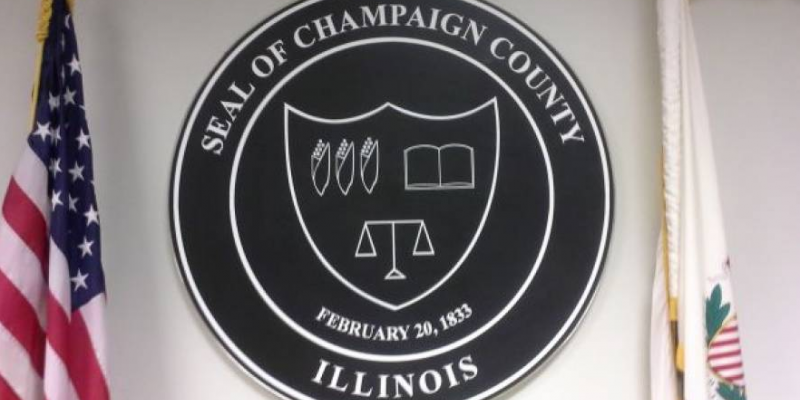“The life of Patton, who turned himself in to police on Thursday night, should not be over. He is an adolescent and should have the opportunity to transform himself. The hope should be that he can be rehabilitated in prison. That prison can play a similar role in helping him to transform his life as it did for Malcolm X.”
U of I professor of African American studies and history, Sundiata Cha-Jua, in his October 2nd News-Gazette column about the apprehension of the alleged shooter in the September 25th Campustown shooting.
Robbie Patton, age 18, was accused of the murder of nursing school graduate George Korchev, age 22, by an array of law enforcement officials at a September 28th press conference where officials released the evidence to implicate Patton. State’s Attorney Julia Rietz told the media there were witnesses at the party who saw Robbie Patton with a gun.
George Korchev was scheduled to begin a new job as a registered nurse in Libertyville. The tragedy inspired the University of Illinois administration to support a candlelight vigil in memory of George.
Already, Mr. Patton’s right to a presumption of innocence has been systematically and deliberately taken away. Patton’s prior criminal record sparked outrage by much of the community commenting on the WDWS radio station, and The News-Gazette’s website. Common sense thinking supposes that had Robbie Patton been punished appropriately the first time, he would not have been around the night of September 25th to gun George Korchev down.
Within law enforcement’s carefully staged performance for the media, we learn Robbie Patton has a prior conviction for shooting a gun at people in the Steak ‘n’ Shake parking lot during the dinner hour of December 14th, 2015. Patton served 142 days at the Du Quoin Boot Camp. Patton was paroled on September 9th, serving just 8 1/2 months of his 8-year sentence. Within 2 days of being out on parole, Patton was confronted by U of I police as a passenger in a car driven by someone caught with cannabis and cocaine. Patton attempted to give a false name to police, and was charged with lying about his identity.
Patton’s short life, as far as he’s been portrayed, inspires little sympathy. Contempt and speculation that Patton is the worst kind of monster has been heaped on his name. Few want to consider further rehabilitation for one who seems to have rejected the sound principles taught at the Du Quoin Boot Camp.
It’s unfortunate the lust for revenge will supersede an analysis of the effectiveness of prison boot camps and overcrowded prisons in general, what is a reasonable prosecution for a gun crime, the wide availability of guns, the psychology of using guns to resolve disputes, or the effects of alcohol, drugs and entertainment have on young people. It would be healthy for this community to have a frank conversation about recidivism. It’s time we assess the services and resources that are available to someone paroled back into our community.
All of this will get buried by the sensational act of sending Robbie Patton to prison for life.
While the family of George Korchev say good-bye to their loved one, so too must all who knew Robbie Patton. There will be two lives lost because of this impulsive shooting of a gun. You want to hope some good can come out of this.
If Robbie Patton shot the gun September 25 that killed George Korchev:
You want to hope Robbie Patton learns to make sturdy, comfortable furniture out of recycled woods and materials.
You want to hope Robbie Patton would work making residential solar panels that can be retrofitted onto a standard house.
You want to hope Robbie Patton can master the English language such he can express his remorse to the Korchev family.
You want to hope Robbie Patton can come to terms with himself, and learn how he can better cope with hurts and anger.
You want to hope that Robbie Patton will use the time to educate himself onto a better path.
You want to hope Robbie Patton can counsel other adolescents to not let your passions have you picking up a gun.
You want to hope Robbie Patton could be paroled back to the community to serve as a role model, exemplifying how to make changes for the better.
Nowhere in our current criminal justice system do these hopes have a chance to materialize. Except to his few closest family members, Robbie Patton will be a forgotten statistic. Maybe Robbie Patton deserves nothing in light of the permanent damage he has inflicted on the Korchev family.
Life goes on, however, and there are over 48,000 of them, costing $38,000 a-year for each one to live in a state penitentiary system built to house 33,000. The taxpayers will spend nearly $2 million dollars to house Robbie Patton until he’s age 70 in an Illinois prison. What do we want as a return on our investment? The truth? Justice? Revenge?








